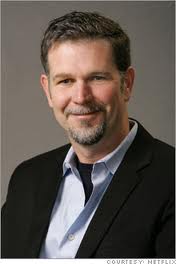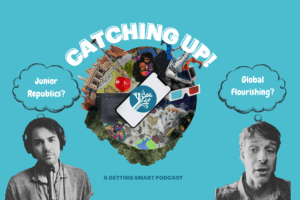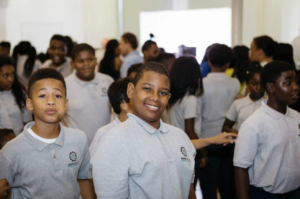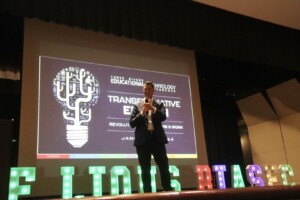Hastings: Human History Defined by Technology

“We define human history by the technology people used.” Reed Hastings takes a long view of societal change. “Forty or fifty years from they will probably call this the Internet age.” Hastings is enthusiastic about the potential for global benefit created by the new opportunity “To offer a great college education to every young person on the planet.”
Hastings closed the ASU Education Innovation Summit (#eisummit). He believes we will soon “rely on technology to teach the corpus of knowledge” (stuff with right and wrong answers). For younger students this will often include games. It will always include constant feedback. New learning technology “will free up teachers to teach humanity” including the ability to create and collaborate. “Our task is to inspire,” said Hastings.
“What should happen is individualized instruction” but “students will still need “one-on-one support” Hastings used the example of mentors like Aristole was for Alexander the Great.
“The assumptions of what students should know have grown with society and changes,” says Hastings. Student’s today are required to know more than generations in the past. “Thirty years from now high school students may be required to know organic chemistry.”
Building good adaptive models has little to do with producing textbooks today said Hastings. It takes a particular skill set that current large firms may not have. These models look different than a linear textbook, thus createing opportunity for new business in this market.
Hastings advocated for the growth of charter schools in response to a question about the role of school districts in the future. He pointed to high penetration and performance levels in Washington DC and New Orleans.
Hastings encouraged entrepreneurs to find something they are passionate about and “refine it and scale it”.






0 Comments
Leave a Comment
Your email address will not be published. All fields are required.